|
Erin Kane As a W. Kamau Bell fangirl, I couldn’t wait to pre-order my copy of the new workbook he’s written with Kate Schatz, Do the Work!: An Antiracist Activity Book. A few days later, I heard Heather McGhee interviewed about her new podcast, The Sum of Us. I found both to be useful, as well as inspiring, enlightening, and entertaining, for anyone interested in anti-racist work and wanted to share them with you. Do the Work!: An Antiracist Activity Book It’s hard, doing the work. And the new book, Do the Work!, by W. Kamau Bell and Kate Schatz is full of hard stuff. It’s aimed at white people who want to be anti-racist. But it’s also fun! It’s actually a workbook, so grab a pencil! Veronica Oberholzer and Micki Luckey This blog addresses those of us who have put SURJ aside or who have minimized our participation, whether we’re feeling over-taxed, not sure how to re-engage, or unsure how to manage a level of engagement that maintains a satisfying level of participation. After the white supremacist murders in Buffalo, SURJ National Director Erin Heaney wrote, “Today, like so many days in America — a country plagued by racist violence — we are all asking ourselves what to do in response.” Are you satisfied with your response, or are you looking to deepen your engagement with racial justice work? Eve Higby Showing Up for Racial Justice partners with BIPOC-led organizations, supporting their efforts and following their lead. What do our partners do and how do we show up for Black, Indigenous, and People of Color? How does accountability manifest in these relationships? This article is part of a series exploring these questions in depth for the fifteen community partners of Bay Area SURJ. CURB’s work
Californians United for a Responsible Budget (CURB) is a coalition of over 80 grassroots organizations working for decarceration in California. Their mission includes reducing the number of incarcerated people, reducing the number of prisons and jails operating in the state, and redirecting funds away from the correctional system and into health and human services. Are you facing a Thanksgiving gathering that has the potential for conflict about the meaning of the day and the history of the celebration? We’ve got some ideas on how to deconstruct some of the myths and start the conversation about how it all really happened.
Since this timeline was published there have been a lot of changes as organizers reassess the timeline needed to repeal California’s Three Strikes Law. Stay tuned for more information about how to get involved coming in early 2022. It’s time to repeal California’s Three Strikes law. This unjust 1994 law made it mandatory for anyone convicted of three felonies to serve 25 years to life if any two of the crimes were considered serious or violent. The result was a tidal wave of life sentences that have disproportionately affected African American, and mentally ill and physically disabled defendants, costing taxpayers billions of dollars each year. Learn more about this law here.
SURJ Bay Area partner organizations CURB and Initiate Justice have formed the Repeal California’s Three Strikes Law Coalition with organizations across the state to put an initiative to repeal this law on the California ballot in November 2022. But how does change like this move from idea to reality? The short answer is through a lot of grassroots organizing and hard work! The process began in May 2021 with polling to test the concept with the electorate and determine how much work was needed. Then, the Coalition wrote the language for the proposed ballot measure in June and submitted it to the Attorney General’s office for a ballot title and summary. Attempts to censor discussions of race and racism are underway nationwide. GOP lawmakers in at least 21 states are either introducing legislation or have already passed bans that impact K-12 classrooms and in some cases, colleges and universities. At the federal level, 30 House Republicans signed on to a pair of bills that would prohibit diversity and anti-racism training in the military and federal agencies.
By SURJ Bay Area
Norman Williams was sentenced to life for stealing a car jack from the back of an open tow truck. Charles Ramirez got a life sentence for stealing a car radio. Vincent Rico, too, for the petty theft of two pairs of children’s shoes from a department store. Why such harsh sentences? All were sentenced under California’s Three Strikes Law, which made it mandatory for anyone convicted of three felonies to serve 25 years to life sentences if any two of the crimes were considered serious or violent. By Heather Millar I’ve always known that my mother’s side of the family came from the South. They were plantation owners. They enslaved Africans. After the Civil War, they joined clubs like the “Daughters of the Confederacy.” My mother used to tell stories about her great-great-grandmother going to college, taking an enslaved teenager as a servant. By SURJ Bay Area Throughout February 2021, SURJ Bay Area celebrated Black History Month by highlighting the stories of Black individuals with disabilities, joining others in the #DisabledBlackHistory hashtag on social media. Here is a collection of those posts, beginning with Black American Sign Language and presenting short profiles of some familiar and some lesser-known figures. #BASL Black American Sign Language, BASL, or Black Sign Variation is a dialect of American Sign Language (ASL) used most commonly by deaf African Americans in the United States. Because of 1954’s Brown v. Board of Education Supreme Court decision, “separate but equal” was ruled unconstitutional and schools were desegregated, including schools for deaf children. It then became apparent that Black students had learned a variation of ASL, now called Black American Sign Language. BASL differs from ASL by phonology, syntax, and vocabulary, uses variations on ASL words, sometimes requires a larger signing space, uses two-handed variants of signs, and uses words taken directly from African American Vernacular English. By Micki Luckey Showing Up for Racial Justice partners with BIPOC-led organizations, supporting their efforts and following their lead. What do our partners do and how do we show up for Black, Indigenous, and People of Color? How does accountability manifest in these relationships? This article is part of a series exploring these questions in depth for the fifteen community partners of Bay Area SURJ. 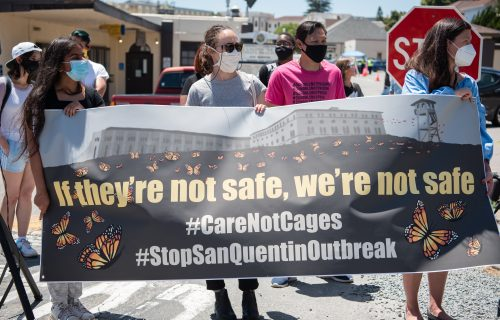 At a demonstration at San Quentin sponsored by EBC and Restore Justice, protestors hold a banner that states “If they’re not safe, we’re not safe” showing their emphasis on working with the people who are directly impacted by incarceration and in particular, by the outbreak of COVID-19 in prisons. Photograph by Brooke Anderson, Movement Photographer. |
Find articles
All
Browse by date
April 2024
MEDIUM |
© COPYRIGHT 2017-2024 SURJ BAY AREA. ALL RIGHTS RESERVED.

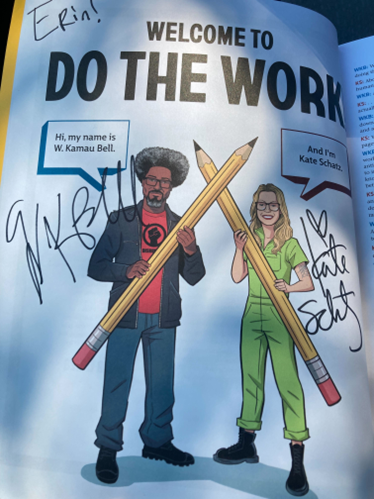
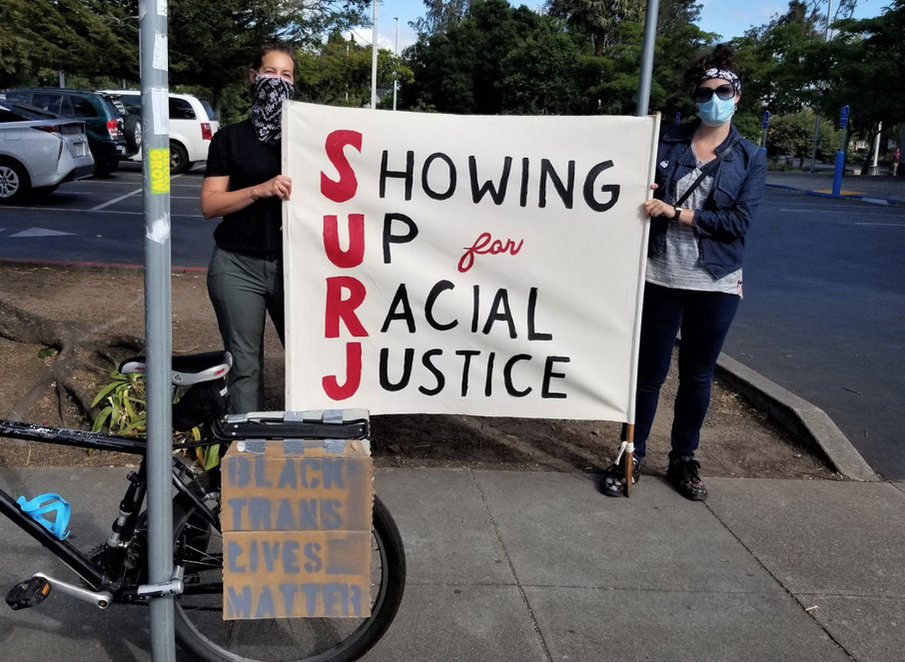
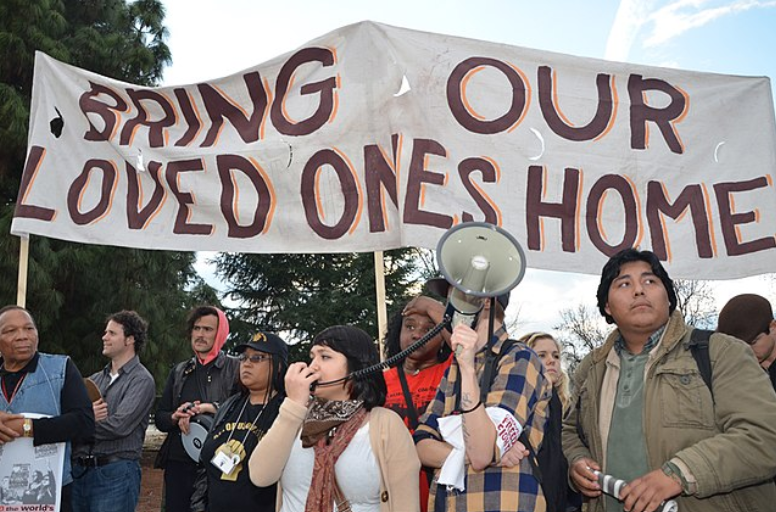

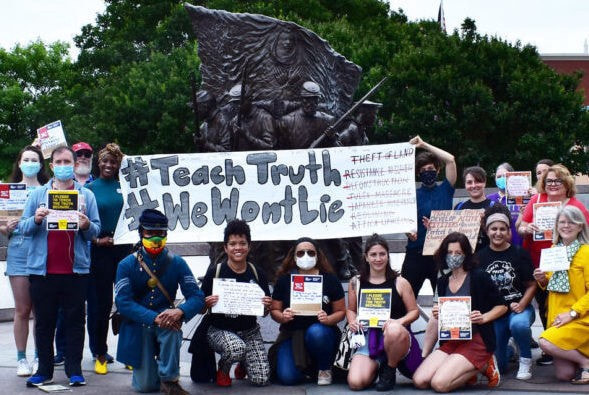
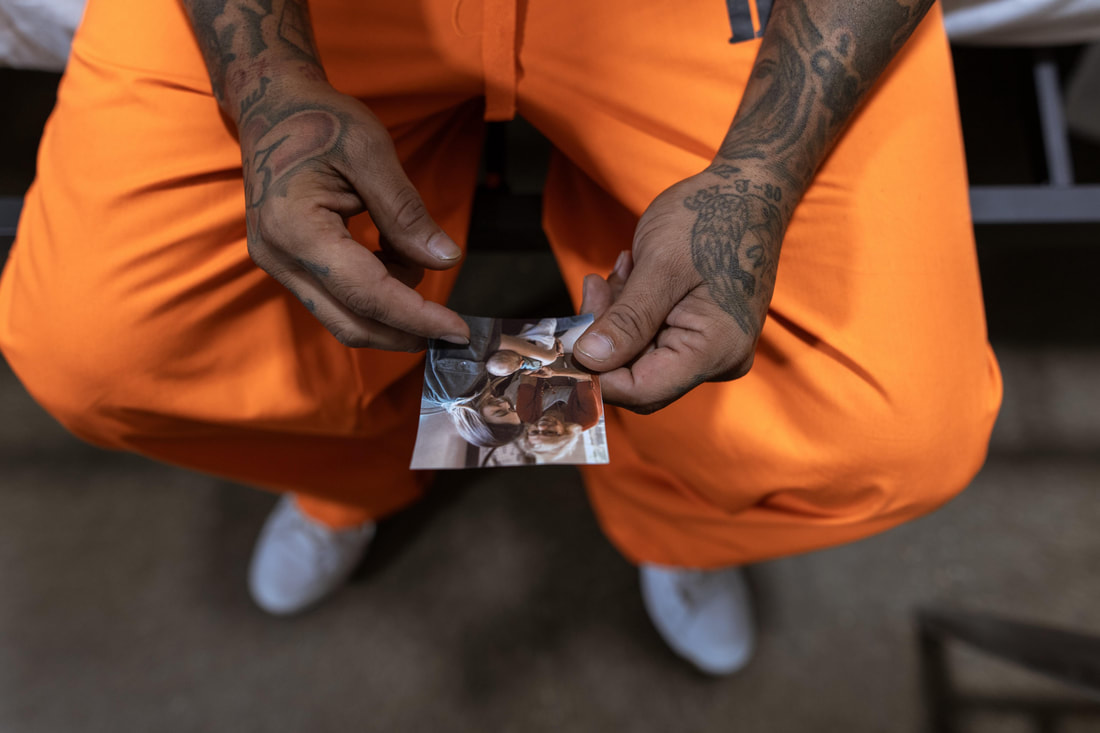
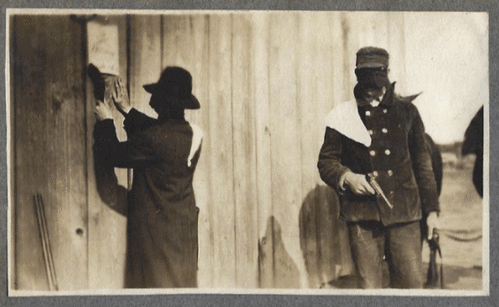
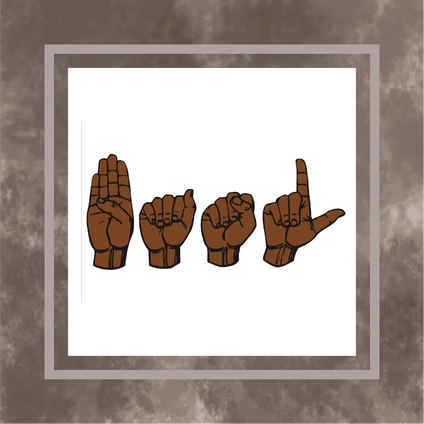

 RSS Feed
RSS Feed